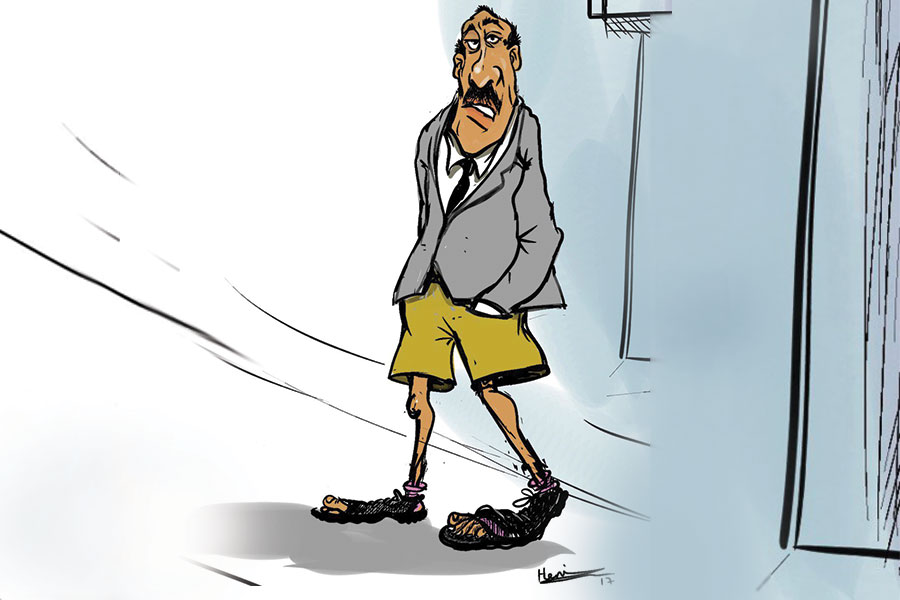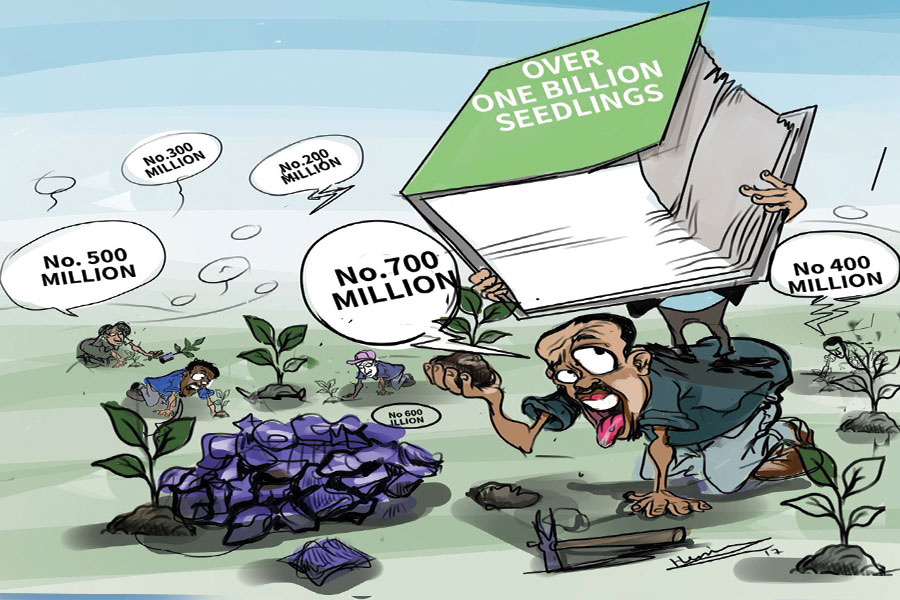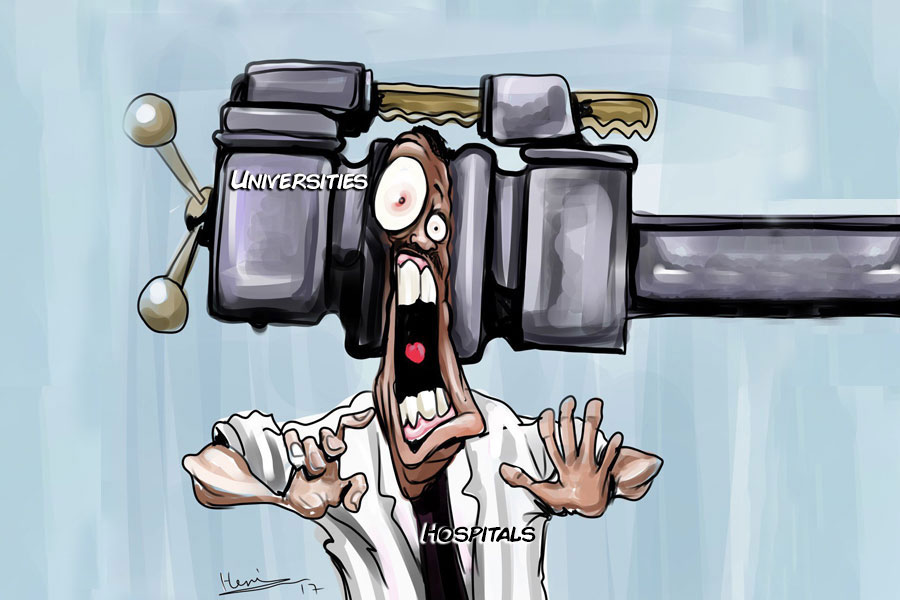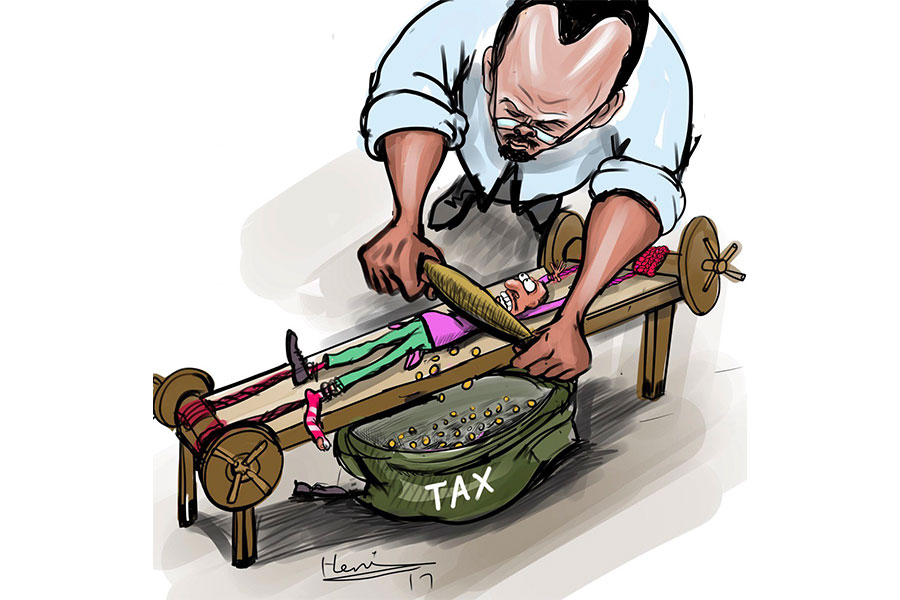
My Opinion | 133429 Views | Aug 14,2021
Jun 14 , 2025. By BEREKET BALCHA ( Fortune Staff Writer )
During the COVID-19 pandemic, I made my own hand sanitizer. Using a YouTube tutorial, I combined isopropyl alcohol, aloe vera, and essential oils. This simple DIY solution kept me supplied. It made me reflect on how often we overcomplicate things when we can do it ourselves, writes Bereket Balcha.
At a weekend bazaar hosted at the Zobras Olympiakos Greek Club, I stumbled upon a Frenchman with a ponytail and fluent Amharic. He ran a stall offering herbal tea, wild honey, and artisanal organic products. Among his samples was a selection of cheeses with a pleasant, authentic taste. But the real standout was a specialty tea made from lemon verbena, a plant prized for its use in herbal infusions, essential oils, and natural remedies.
The plant's medicinal benefits are widely recognised, but for me, its most alluring feature was its rich, aromatic fragrance. I bought about 200 grams of dried leaves, which perfumed my living room and made for a deeply enjoyable tea. When I ran out, I tried to reconnect with the vendor, but he proved elusive. He was constantly on the move across the capital, catering to health-conscious urbanites.
Surprisingly, it became nearly impossible to find lemon verbena again, a supposedly common herb that vanished for two years. I eventually gave up, until a chance errand with a friend led me to a roadside greenhouse where I found lemon grass colloquially known as Tej Sar, a relative of lemon verbena.
Though similar in appearance and scent, lemon grass is a tall grass, while lemon verbena is a leafy shrub. Intrigued, I bought a bunch for just 200 Br. Within weeks, it was in full bloom. After drying it for a few days, I brewed my first homemade tea. The taste was refreshing; the health benefits real. It made me reflect on how often we overcomplicate things, chasing consumer products when simple, local solutions lie within reach.
I had once been willing to spend hundreds of birr tracking down that tea. Now, I was producing my own. It was a liberating shift, a reminder of the value of self-reliance in a consumer-driven world. The experience became a metaphor for other areas of life, where imagination and initiative can replace dependence on the market.
It was a lesson on the famous DO-IT-YOURSELF moto.
Soon after, a friend introduced me to a German expat who made kombucha infused with lemon verbena and green tea. Kombucha is a fermented drink made with tea, sugar, and a SCOBY (a symbiotic culture of bacteria and yeast). This version was mildly alcoholic and claimed to aid digestion, reduce inflammation, and even help fight cancer.
I bought a 500ml bottle and downed it in one sitting. I immediately felt a lift in mood and a relief from lingering gut issues. Once again, I was struck by how something simple and homemade could have such immediate impact. We are told that we need the market for everything. But we often need little more than curiosity, community, and some basic know-how.
During the COVID-19 pandemic, I even made my own hand sanitiser. Using a YouTube tutorial, I combined isopropyl alcohol, aloe vera, and essential oils. At a time when panic buying made sanitiser scarce and overpriced, this simple DIY solution kept me supplied. The ingredients were easier to find than the actual formula, another sign of how knowledge can empower us when markets fall short.
The idea of DIY took on even more resonance while watching the latest "Mission Impossible: Dead Reckoning" premiere at GAST Mall. Tom Cruise, ever the maverick, once again performed his own jaw-dropping stunts, from clinging to a flying aircraft to riding a motorbike off a cliff. His actions radiated confidence and commitment, echoing the film's mantra: "Don’t be so careful. Be confident."
On "The Tonight Show," Jimmy Fallon marvelled at Cruise's stunts, including one where he was strapped to an aircraft wing facing engine winds at 145 mph.
Cruise once told Jimmy Fallon how it felt to be strapped to an aircraft wing, the wind hitting his face at 145 miles per hour. Cruise explained it all with calm precision, making the impossible seem almost routine. Fallon mentioned a previous guest: The Weeknd, Abel Tesfaye, who admired Cruise’s fearlessness. Cruise returned the admiration by lip-syncing “Can’t Feel My Face,” helping the song rise on the Billboard charts.
Even the "Mission Impossible" theme music defies convention. Composed by Lalo Schifrin, the piece is written in 5/4 time, a rarity in film scoring. This rhythm, famously used by jazz legend Dave Brubeck in his 1959 album "Time Out," lends the theme a timeless tension that mirrors the film’s relentless energy.
Much like the stunts, the music, and the message of the franchise, the lesson circles back to DIY. In a world of fragile supply chains and volatile economies, self-reliance is more than a survival skill, it is a philosophy. From growing your own herbs to brewing kombucha or making sanitizers, the message is clear: the tools are often within reach.
Whether in the kitchen or the backyard, DIY is no longer a quaint hobby. It is a quiet rebellion against mass consumption, sparked by confidence and curiosity. As Cruise himself might say, it is not about being safe. It is about being ready to take the leap.
PUBLISHED ON
Jun 14,2025 [ VOL
26 , NO
1311]

My Opinion | 133429 Views | Aug 14,2021

My Opinion | 129943 Views | Aug 21,2021

My Opinion | 127749 Views | Sep 10,2021

My Opinion | 125303 Views | Aug 07,2021

Aug 9 , 2025
In the 14th Century, the Egyptian scholar Ibn Khaldun drew a neat curve in the sand....

Aug 2 , 2025
At daybreak on Thursday last week, July 31, 2025, hundreds of thousands of Ethiop...

Jul 26 , 2025
Teaching hospitals everywhere juggle three jobs at once: teaching, curing, and discov...

Jul 19 , 2025
Parliament is no stranger to frantic bursts of productivity. Even so, the vote last w...